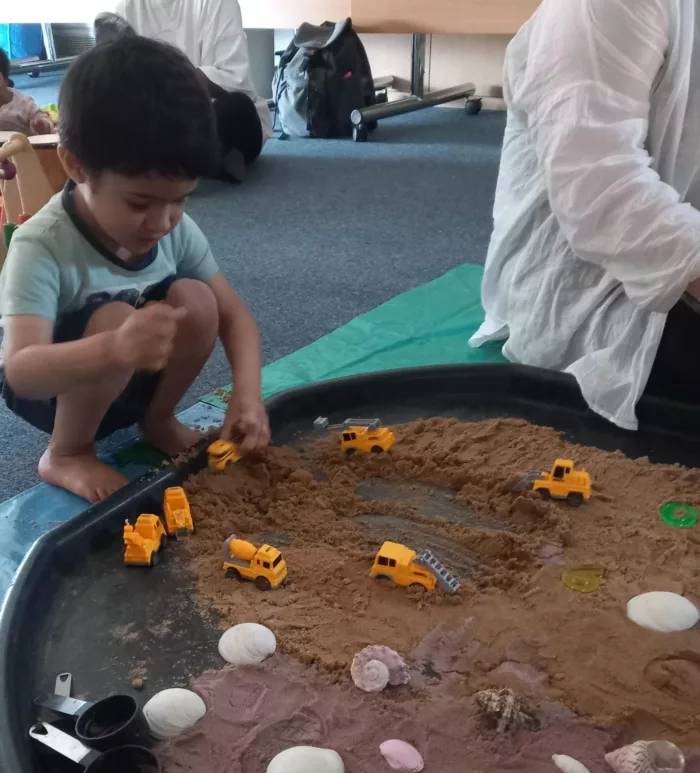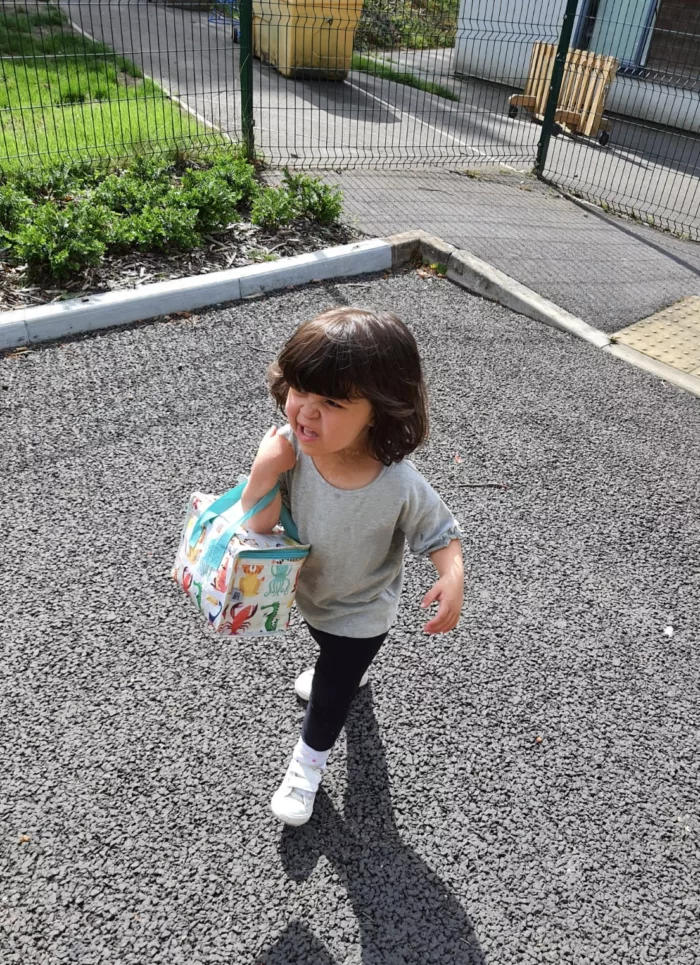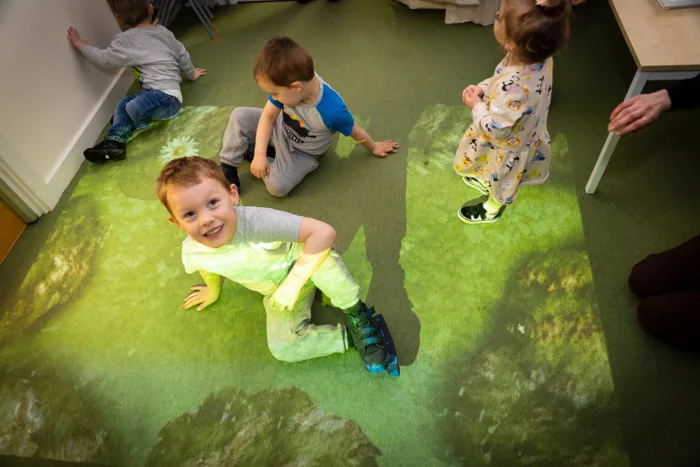Hamza's story
Hamza is three years old and is awaiting an assessment from the CDC. He attends our Kids Family Group in Birmingham.

This website will offer limited functionality in this browser. We only support the recent versions of major browsers like Chrome, Firefox, Safari, and Edge.
The early years of a child’s life lays the foundation for their future health, wellbeing and learning potential. It’s vital that babies and young children with SEND have access to quality early years support. Our experience shows that when you get this right, it can be life-changing.
We’re proud of the range of services we deliver to support babies and toddlers in the early years.
Inclusive and specialist nurseries in Basingstoke and Birmingham which enable children to explore, interact, and grow together.
Early Years and SEND family groups in many communities, from Birmingham to Hull, where all kinds of children with SEND are given opportunities they simply cannot find in other settings.
Smaller welcoming environments that meet their needs, where practitioners meet them where they are and give time and space to each individual.
Portage in Camden and Southwark where practitioners make weekly home visits to families who have children with additional support needs. Our practitioners work in partnership with families to explore their child’s abilities and plan exciting activities that propel their development to the next level.
Navigators in Birmingham where our practitioners provide a single point of contact for families with disabled children under 5. Our practitioners support parents with crucial aspects of parenting, from establishing routines to nurturing emotional wellbeing.
Hamza is three years old and is awaiting an assessment from the CDC. He attends our Kids Family Group in Birmingham.

Chloe is autistic and has global developmental delay and epilepsy. She attends our inclusive Basingstoke Nursery.

Logan is three years old and is autistic. He attended our Kids Family Group in Birmingham with his mother Lisa.

All too often children with SEND are not able to access the right early years provision. We’ve identified the five biggest barriers to access for them.
It is widely reported that SEND funding in early years settings, along with their early years rate, isn’t enough to provide the quality of care needed for children with SEND.
Data on the needs of children with SEND in early years has never been routinely collected or published.
Alarmingly only 6% of local authorities in England have enough childcare places for children with disabilities.
When it comes to wider play and social opportunities in the community, parents tell us they have felt judged and isolated attending some universal services and so no longer attend, meaning children with SEND are excluded from social and development opportunities.
The early years sector has been described as having a staffing crisis. Along with the Early Education and Childcare Coalition, we recommend that urgent action is required to ‘rescue’ the sector through a comprehensive early years workforce strategy.
Money matters and boosting investment in babies and toddlers with SEND to give them the strongest start is essential. However, positive changes can also be delivered within existing budgets by reorganising the current funding regime without adding costs.
In a truly inclusive setting children with SEND benefit from additional therapies, specialist workforce and a supported pathway to the right school. This approach supports all children to thrive, in a way a universal offer alone could not.
A significant challenge for parents in getting the right help for their child in the early years is navigating a complex health, care and education system. Kids has pioneered the SEND Community Navigator model in one local area to provide a single point of contact for rounded support and guidance to ease the burden on families.